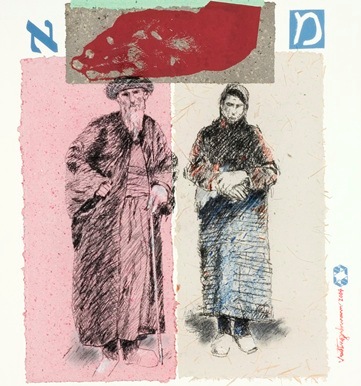Da vingança à humilhação: por uma pedagogia do reconhecimento e da dignidade humana
DOI:
https://doi.org/10.17851/1982-3053.6.10.117-135Palavras-chave:
Cultura, Vergonha, HumilhaçãoResumo
A vergonha é um sentimento universal, todos os seres humanos o conhecem, − embora tenha manifestações diferentes dependendo da cultura a que se pertence e segundo se é homem ou mulher. A vergonha é “um sentimento caseiro e torturador, que mal pode ser descrito com palavras. É limitado e está intimamente ligado a reações corporais como o rubor. Quando nos sentimos envergonhados, é como se fôssemos atropelados. Perdemos, pelo menos temporariamente, a serenidade e o controle próprio
Downloads
Referências
BRADSHAW, John. Sanar la Vergüenza que nos domina. [s.l.]: Ediciones Obelisco, 2006.
COLLODI, Carlo. Las aventuras de Pinocho. [s.l.]:[s.n.], 1990.
ELIAS, Norbert. Über den Prozeß der Zivilisation. Bern: Francke, 1969.
FOSSUM, Lerle; MASON, Marilyn. Facing Shame: Families in Recovery. Norton & Company, 1992.
GALTUNG, Johan. Strukturelle Gewalt. Reinbek: Rowohlt, 1975.
GILBERT, Paul; Andrews, Bernice (Ed.). Shame. Interpersonal Behavior: Psychopathology and Culture. New York: Oxford University Press, 1998.
GOFFMAN, Erving. Interaktionsrituale – Über Verhalten in direkter Kommunikation. Frankfurt: Suhrkamp, 1986.
GOLDBERG, Carl. Understanding Shame. Northvale, NJ: Jason Aronson, 1991.
HILGERS, Micha. Scham: Gesichter eines Affekts. Göttingen: Vandenhoeck & Ruprecht, 1997.
HONNETH, Axel. Kampf um Anerkennung. Frankfurt: Suhrkamp, 2003.
ICAZA, Jorge. Huasipungo. [s.l.]: Losada, 1934.
JACOBY, Mario. Scham‑Angst und Selbstwertgefühl – Ihre Bedeutung in der Psychotherapie. Düsseldorf: Walter, 1993.
KOHLBERG, Lawrence. The psychology of moral development. San Francisco: Harper & Row, 1984.Kohut, Heinz. Analisis del self: El tratamiento psicoanalitico de los Trastornos naricisticas de la personalidad. [s.l.]: Amorrortu, 1996.
KRYSTAL, Henry.Massive psychic trauma. New York: International University Press, 1968.
LEVI, Primo. Ist das ein Mensch? Erinnerungen an Auschwitz. Frankfurt: Fischer, 1979.
LEWIS, Michael.Shame – The Exposed Self. New York: The Free Press, 1992.
LINDNER, Evelin. Making Enemies – Humiliation and International Conflict. Westport: Praeger Security International, 2006.
MARKS, Stephan. Die Würde des Menschen oder Der blinde Fleck in unserer Gesellschaft. Gütersloh: Gütersloher Verlagshaus, 2010.
MARKS, Stephan. Scham– die tabuisierte Emotion. Düsseldorf: Patmos, 2007.
MARKS, Stephan. Warum folgten sie Hitler? Die Psychologie des Nationalsozialismus. Düsseldorf: Patmos, 2007.
NATHANSON, Donald (Hg.). The many faces of shame. New York: Guilford, 1987.
NECKEL, Sighard. Status und Scham–Zur symbolischen Reproduktion sozialer Ungleichheit. Frankfurt: Campus, 1991.
OSER, Fritz; SPYCHIGER, Maria. Lernen ist schmerzhaft – Zur Theorie des Negativen Wissens und zur Praxis der Fehlerkultur. Weinheim: Beltz, 2005.
PANKSEPP, Jaak. Neuroscience: Feeling the Pain of Social Loss. In: Science 302, S. 237‑239, 2003.
RUSHDIE, Salman. Vergüenza. London: Jonathan Cape, 1983.
SAINT‑EXUPÉRY, Antoine de. El principito. [s.l.]: Editorial Alfredo Ortells, 1991.
SCHORE, Allan. Early Shame Experiences and Infant Brain Development. In: GILBERT, Paul; ANDREWS, Bernice Andrews (eds.). Shame. Interpersonal Behavior, Psychopathy, and Culture. New York,1998. S. 57‑77.
SCHÜTTAUF, Konrad; SPECHT, Ernst; WACHENHAUSEN, Gabriela. Das Drama der Scham. Göttingen: Vandenhoeck & Ruprecht, 2002.
SEIDLER, Günter. From Object‑Relations Theory to the Theory of Alterity: Shame as an Intermediary between the Interpersonal World and the Inner World of Psychic Structure. In: American Journal of Psychotherapy 3, 1997. S. 343‑356.
SERGE, Tisseron. Phänomen Scham. Psychoanalyse eines sozialen Affekts. München: Reinhardt, 2000.
TAYLOR, Charles. Die Politik der Anerkennung. In: TAYLOR, Charles (Hg.). Multikulturalismus und die Politik der Anerkennung. Frankfurt a.M., 1993.
TITZE, Michael. Die heilende Kraft des Lachens. Mit therapeutischem Humor frühe Beschämungen heilen. München: Kösel, 2001.
WETZELS, Peter. Gewalterfahrungen in der Kindheit: Sexueller Missbrauch, körperliche Misshandlung und deren langfristige Konsequenzen. Baden‑Baden: Nomos, 1997.
WURMSER, Leon. The Mask of Shame. Baltimore: Johns Hopkins University Press, 1981.
Downloads
Publicado
Edição
Seção
Licença
Os direitos autorais pertencem exclusivamente aos autores. Os direitos de licenciamento utilizados pelo periódico é a licença Creative Commons Attribution 4.0 (CC BY 4.0): são permitidos o compartilhamento (cópia e distribuição do material em qualquer meio ou formato) e adaptação (remix, transformação e criação de material a partir do conteúdo assim licenciado para quaisquer fins, inclusive comerciais.






